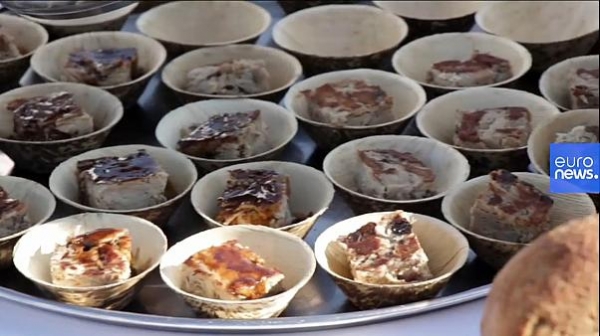
Lamb stew with oxygarum; wild boar and venison stuffing; and cibarium bread.
These were some of the Roman-era delights cooked up at a special banquet in Spain.
Archaeologists and chefs teamed up to reinterpret food from more than 2,000 years ago in Italica, once the home of Roman emperors such as Trajan and Adrian.
For participating chef Antonio Bort, the archaeological culinary findings could help spice up modern cuisine.
“For our current kitchen, it is quite interesting to know how the Romans ate and the products they used. And above all, it opens the range of possibilities to us, the chefs, who are restless and like to innovate with these products,” he said.
Oxygarum vinegar also featured. It is obtained from a fish sauce known as garum, something very popular in Roman cuisine.
Chef Camila Ferraro cooked up a plate of wild boar and venison stuffing with a sauce made of aromatic herbs widely used in Roman cuisine and some oxygarum caramel. Ferraro said the once-pricey ingredient was equally valuable for savoury or sweet dishes.
“I think it opens the possibility of making many elaborations with this product, not only salty or intended for fish, but also for sweets or meat, or accompaniments of any kind,” said Ferraro.
Roman cibarium bread, made out of einkorn wheat, was also put under the spotlight.
“From my point of view, it is one of the best cereals that exist, the einkorn,” said artisan baker Domi Velez.
